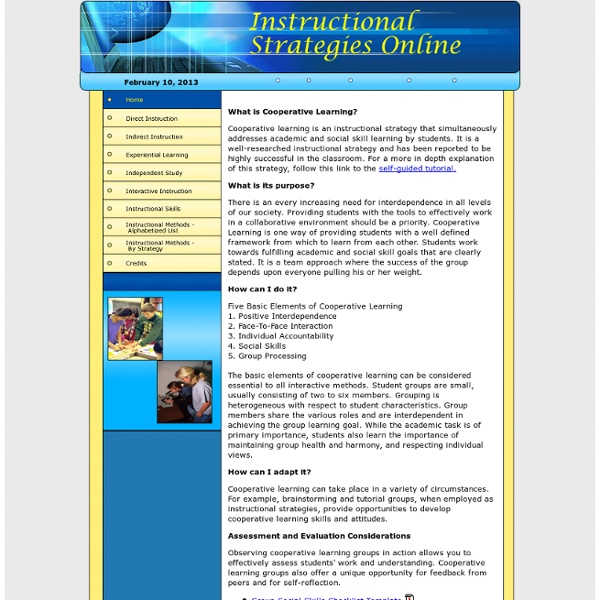Cooperative Learning
What is Cooperative Learning? Cooperative learning is an instructional strategy that simultaneously addresses academic and social skill learning by students. It is a well-researched instructional strategy and has been reported to be highly successful in the classroom. For a more in depth explanation of this strategy, follow this link to the self-guided tutorial. What is its purpose? There is an every increasing need for interdependence in all levels of our society. How can I do it? Five Basic Elements of Cooperative Learning 1. The basic elements of cooperative learning can be considered essential to all interactive methods. How can I adapt it? Cooperative learning can take place in a variety of circumstances. Assessment and Evaluation Considerations Observing cooperative learning groups in action allows you to effectively assess students' work and understanding. Teacher Resources
5 Innovative Mind-Mapping Tools For Education
What do you do when you have an elaborate project, assignment, or paper that needs to be quickly organized? Do you fire up Microsoft Word and whip up an outline? Do you pull out a pen and paper and start sketching? What if you could have the best of both options with a free online tool? XMind Definitely one of the easiest ways to embed a mind map into your blog or website. The biggest feature to me is the ‘Pro’ feature which lets you record what an audience (or your classroom) says directly into the mind map as an .mp3. MindMeister MindMeister is a powerful tool that is great for mind-mapping on the go. The software is now at version 6.0 which brought on the ability to ‘theme’ your mind maps so they look all the snazzier. The killer tool is far and away the ability to collaborate, though. iMindMap Sample From ThinkBuzan iMindMap Basic is a free Mind Mapping software which will get you Mind Mapping quickly and easily. SpiderScribe.net Click to enlarge! Google Docs Other Mind Mapping Tools
Related:
Related:



